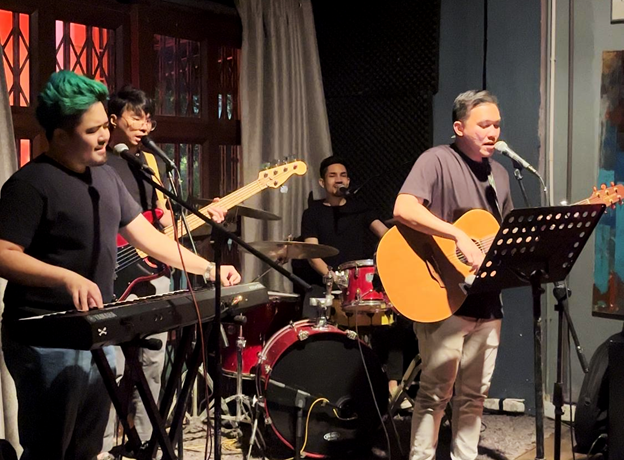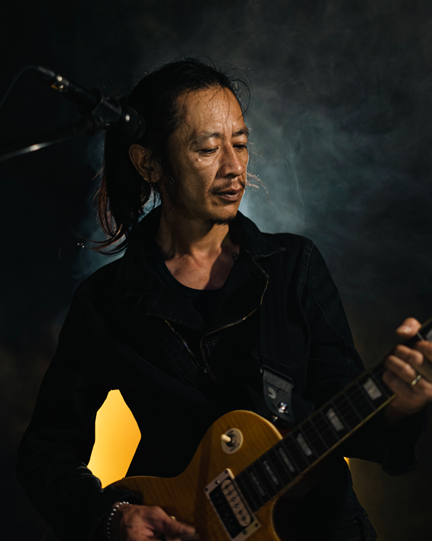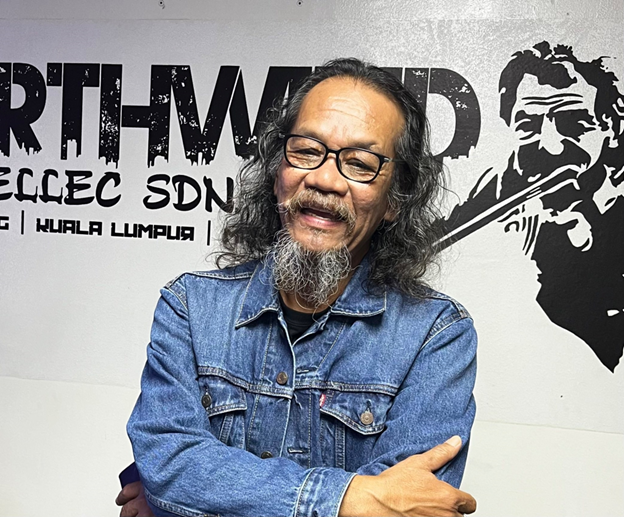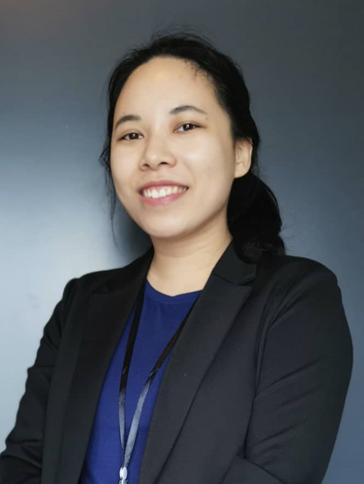A brief lowdown on the personalities driving music’s different sectors forward in Penang.
By Rachel Yeoh
Fête de la Musique (or World Music Day, as we know it) started 41 years ago in France, where the general public was encouraged to play music outdoors as part of the celebration. This tribute caught on and spread globally, and is now observed by many music associations and enthusiasts worldwide. If you had been scrolling social media during the Covid-19 lockdown, you may have seen videos of musicians and singers in Italy performing on their balconies during quarantine and wondered if the same spirit of 21 June 1982 France has come alive.
Though I have not seen this happening in Penang, despite the many balconied apartments we have in this land-lacking state, I must say that Penangites hold what I call “potent potential”.
However, this journey to making music accessible to and appreciated by more people cannot be possible without the suzerains of the Penang music scene. In conjunction with World Music Day, let’s get to know the key players and shakers of music in the state today.
Paul Augustin of Penang House of Music
Paul Augustin started playing music (and got paid for it) in his high school days in 1976. And though it was “so shiok” to get paid RM5 to RM10 per gig in those days, it wasn’t money that drove him to build a whole career around music, it was passion. From playing in bands to managing shows and festivals under a stadium management company in Kuala Lumpur, his zeal did not cease. He even became the lyricist for the 1998 Commonwealth Games official theme song, when Malaysia played host.
However, the Penang boy always wanted to do something special in his home state. From 2004 to 2017, through hard work, determination and even running out of money, he ran his own festival—the much-celebrated Penang Island Jazz Festival.
Even after the annual affair completed its course, Paul was hard at work behind the scenes, producing two exhibitions on the history of popular music in Penang (2010 and 2013) and publishing Just For The Love Of It: Popular Music in Penang, 1930s – 1960s. This led to the genesis of The Penang House of Music in 2015, a venue that houses a Gallery, Black Box and a Resource Centre. A stroll through the exhibition space will give you a thorough grasp of Penang’s unique and robust music heritage.
During the Covid-19 pandemic, there was an increased focus on archiving of historical artefacts, as the exhibition space was closed to visitors. This included archiving of entertainment magazines, radio call cards, photographs, and vinyl records, among others and led to visits from music scholars and academics from across the country and even those from overseas to PHoM. These visits prompted the birth of the “Echoes, Shadows & Footprints – Sustainability, Mobility and Nationalism in Malaysian Performing Arts & Culture” Symposium, held in June 2022 as a space for both practitioners and academics to connect, converse, and collaborate.
“Penang is small but it has a wealth of talent, both then and now,” Paul says.
Yew Kok Cheong of Soundmaker Studio and Buddha Beat
Yew Kok Cheong, also known as Cole Yew, can be considered a “patron saint” of underground music in Penang. Ever since he started Soundmaker Studio in 2006, a rugged-industrial space (created by circumstances, not by design) located on the second floor of the Malaysia Saw Khaw Lean (Heah) Building in George Town, alternative bands without a “home” to showcase their music have found refuge within its walls. Yew always had a deep interest in music, but it was as if another realm of rhythm unlocked when he discovered alternative music, what he considers “real art”.
As time progressed, he began to act on the greater need to nurture this segment of music that is often regarded as the “antihero” of mainstream music. His journey to encourage the thriving of underground music is filled with bumps on the road in terms of resources and the crippling fear that authorities would storm in to stop a gig—or even worse, to ransack the place, taking the musical instruments with them. After all, underground music is considered by some to be a form of “devil worship”, even today.
Nonetheless, he struggles because he knows that the lifeblood of every musician is to perform on stage for an audience—to share their craft with willing listeners. In 2018, Yew formed Buddha Beat with Krishna Armum to introduce a new form of modern spiritual music that fuses folk instruments (e.g. Chinese bamboo flute and the Indian tabla) with modern ones. Together, they have been touring around Malaysia, Thailand and Vietnam, and online to the Taiwan and Canada audience.
“I hope to connect and bring our music to the international level, bringing Buddha Beat as far as we can go. As for the studio, I want to see it become a full-fledged recording label and live house in town. We are planning to sign bands, promote them, and handle their copyrights management too,” Yew says.
Shaik Fitri of Ruas
Most of those involved in Penang’s music industry do not do it full-time. The same goes for Shaik Fitri, who works as an engineer in Seberang Perai but mans Ruas Records Store, featuring difficult-to-find, indie band records in George Town from 7PM until late.
“I love this [running the music store] more than my full-time job, but I need money to support this hobby,” he laughs.
Shaik started collecting records during his schooling days, after he fell in love with hardcore punk. Since it was a very niche market, he had to source them from his friends in Kuala Lumpur. When he went to university, he started buying these underground music cassettes in bulk to sell them to those who were interested. In the meantime, he continued to discover alternative music bands locally through recommendations and international ones through magazine subscriptions.
In 2016, he toyed with the idea of opening a record store with his friend. Together, they started operating a record store in a hallway of another business premise. It was tiny but it worked, until it couldn’t anymore – no thanks to the Covid-19 lockdown.
Fortunately, the vinyl business started to bloom in the midst of adversity because of online demand. The sales spike gave them enough confidence to venture into a physical store once again. In 2022, Shaik and a few friends came together to rent a space along Jalan Pintal Tali, George Town where people could come, have coffee, enjoy music, and purchase rare and pre-loved records. The place officially opened its doors on 8 August 2022 and has been operating ever since. Shaik hopes that his collection will help preserve lesser-known types of music, keeping them in the market to enlighten those who have yet to come across genres never heard on the radio.
Mohd Mazlan Ayob of Penang Artiste Association
Mohd Mazlan Ayob entered the music scene 40 years ago, when it was still difficult to make a name for yourself because there were no institutions set up, nor were there many locations to perform in. “For starters, you needed to be friends with those who have already made a name for themselves in the market—mine was Datuk M. Nasir,” he says, adding that those with a passion for music picked up what they needed to know as they went along, what he calls university on the streets.
He helped showcase stars like Ning Baizura and Erra Fazira in the past but now, he is after the equipping of musicians in the field and securing their future in this country. Though Malaysia’s music scene can be considered a thriving one, Mazlan believes that there must be an umbrella to protect and promote local musicians, through the labelling of their art through patents so they have intellectual property rights. He also wants to see a blueprint for the music industry. Otherwise, religiosity may take over and music, which is an influential communication vehicle, may be considered “haram”.
Through his recording studio (57Studio) and his involvement as the Chairman of the Penang Artiste Association (also known as Persatuan Anak Seni Pulau Pinang), Mazlan is making headway to linking music with a cause, specifically towards the awareness of UN’s Sustainable Development Goals (SDG). He has worked with a few artists (from Malaysian music legends to music makers in aboriginal tribes) to spread awareness of nature.
Through the work that he does, Mazlan hopes musicians in Penang get the recognition they deserve for the art they craft, and maybe it can be an example to other Malaysian states to follow suit.
Annie Chow of Penang Island Chorus
Annie Chow began her musical journey with the piano. But as her passion for music grew, she began to explore other musical instruments like the violin, flute, and cello, embracing every opportunity to learn and grow. She was later coerced to join a community orchestra by her music teacher—which was a good thing because she discovered the joy of making music in a group. One thing led to another, and before long she found herself completing a programme for conductors and conducting a junior orchestra, just as she entered high school.
She was also musically active in school, joining the Chinese orchestra and conducting the children’s choir. As she progressed with her studies, she thought her journey with music was slowly dissipating, but her peers found out about her musical background and she started getting active in the scene again with church choirs and teaching music. She also got involved with the production of Les Misérables, which ultimately ignited her passion for music again.
When she came back to Penang after her studies, she joined the Actors Studio Chorus, but before long, the resident conductor, Martin Rutherford announced his retirement. Together with Dan Guerrard, they decided to step up to the role to help organise and rebrand the group as the Penang Island Chorus.
Penang Island Chorus recently completed GLORIA, an orchestra and choir concert, which Chow regards as a transformative experience as she embraced the role of a formal conductor, learning to balance rigidity with adaptation and fostering a deep connection between the musicians and the audience.
Dan Guerrard of Penang Island Chorus
Dan Guerrard is an inspiring music teacher, composer, orchestrator and conductor hailing from the United Kingdom. With a strong educational background in music psychology, he has shared his expertise internationally in Bermuda, Thailand, Kuwait, and China before finding a new home in Penang. Drawn to the city by its reputation as a great place to raise a family, he agreed to a job as a primary school music teacher, packed his belongings and his family, and moved to the island.
After settling down, he found out about a choir through a colleague and agreed to join in October 2022. During that time, the director was looking at retiring and disbanding the chorus. Hating to see everyone go their own ways, Guerrard fearlessly took on the role with Annie Chow.
Guerrard’s mission is to create a vibrant community choir that welcomes anyone with a passion for singing. Challenging traditional notions of talent, he firmly believes in the power of practice, training, dedication, and determination to transform individuals into successful musicians.
To drive the music scene here, Guerrard is always seeking collaborations with other musical groups, as they have done with the Musica Sinfonietta orchestra and the local jazz society. Together, he believes they will be successful in introducing new audiences to the diverse and rich music scene, even among the young generation.
“Let’s give young people a chance to experience the joy of music. They have had a miserable time with Covid, and we now need to open up as much as we can, revive the music scene in Penang, and encourage everyone to experience and love all sorts of music here on our beautiful island.”
A concoction of oxymoronic attributes, Rachel Yeoh is a lazy overachiever. She is the assistant editor of Penang Monthly and sometimes finds herself performing a little something-something in front of an audience. Always planning for something to do while procrastinating on her bed, you’ll see her running to the door at any chance to travel.







